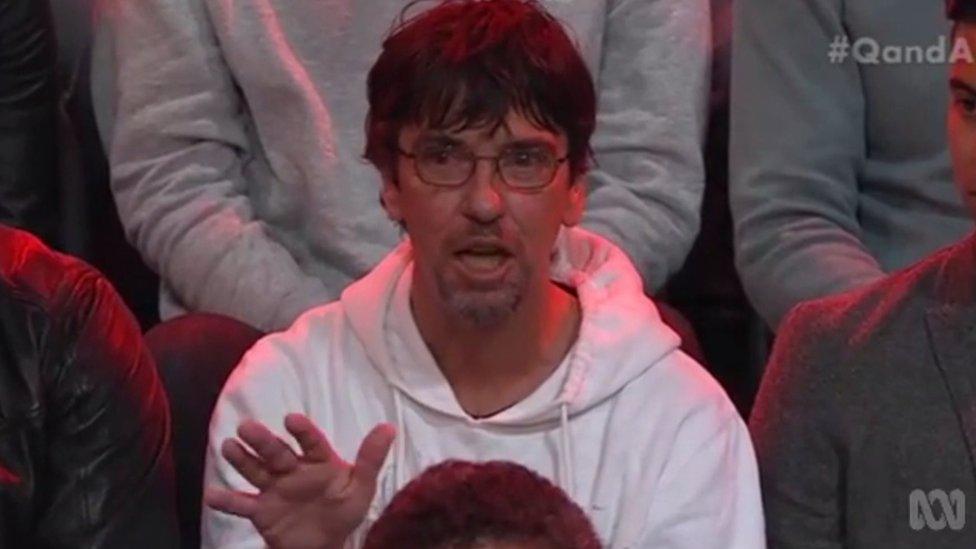Pauline Hanson: Australian anti-Islam MP 'confident' of comeback
- Published
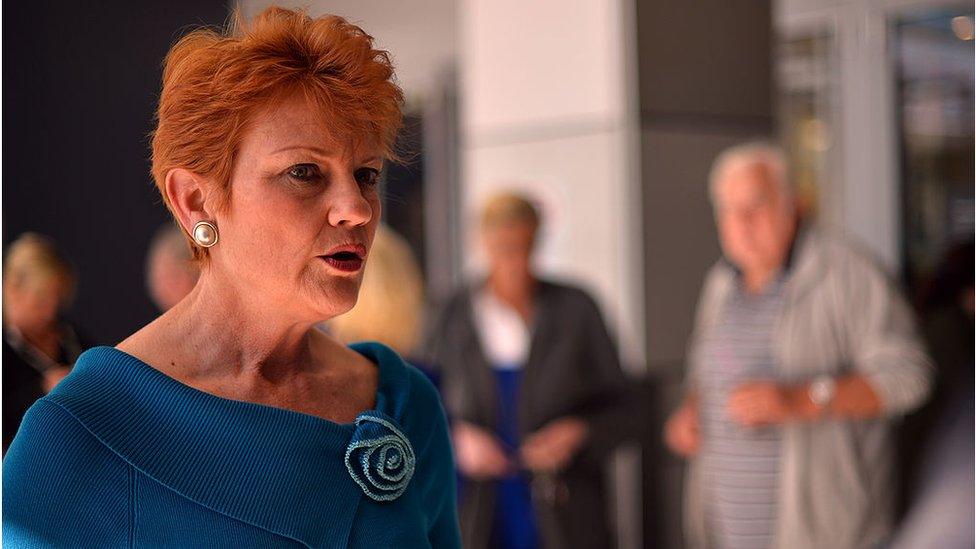
Pauline Hanson may return to Australia's parliament for the first time since she lost her seat in 1998
Controversial Australian politician Pauline Hanson says she is "quietly confident" of being returned to parliament at the 2 July election.
Ms Hanson gained worldwide notoriety when she led the anti-immigration One Nation party in the 1990s.
She lost her seat in 1998 and has since repeatedly failed to gain a position in state and federal legislatures.
But changes to voting laws and a so-called "double dissolution" of parliament will favour Ms Hanson.
Ms Hanson is running for a seat in the upper house, the Senate, where changes to the ballot will give voters more control over where they direct their preferences.
Other parties previously did preference deals to keep Ms Hanson out of parliament.
But under the double dissolution rules used to call this election early, all seats in the Senate will be declared open on 2 July, rather than the normal half.
This means the normal quota of votes needed in a state to win a Senate spot reduces by half, to 7.7%.
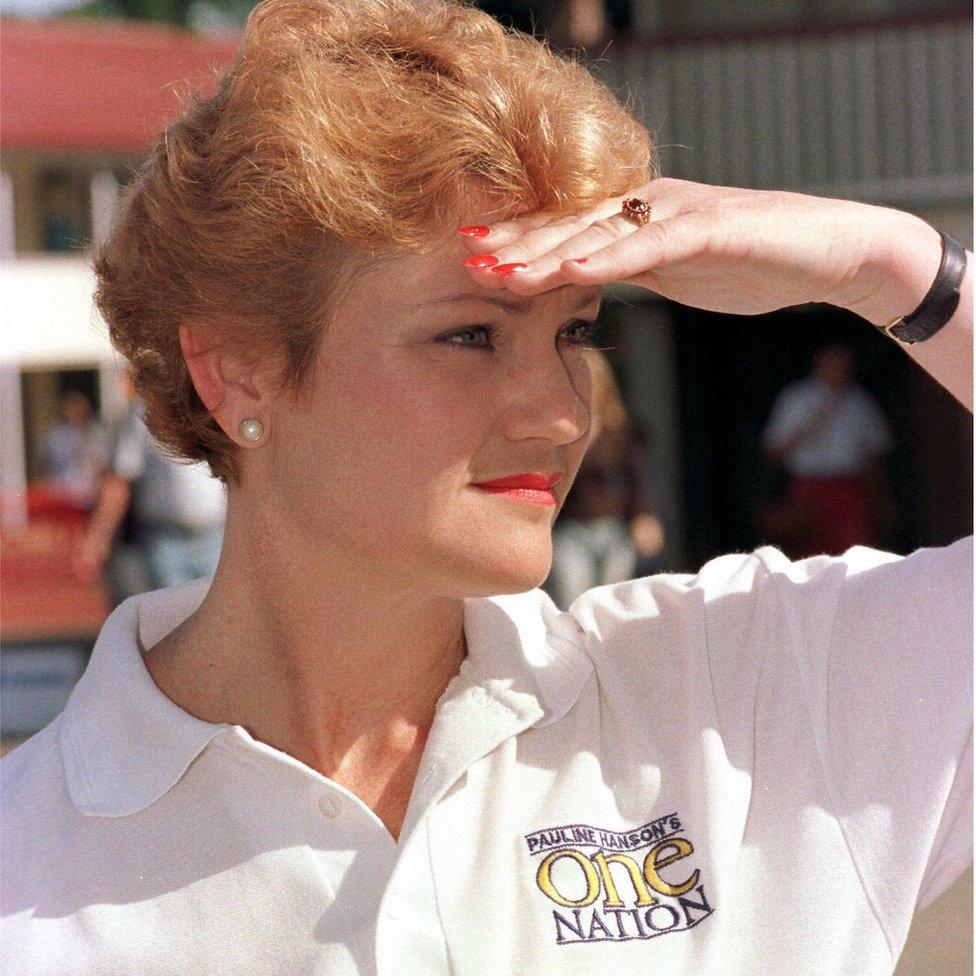
Ms Hanson owned a fish and chips shop before entering Australia's parliament
Ms Hanson told the Nine Network on Tuesday that she was "quietly confident" of winning a place.
"Previously the major political parties never preferenced me. This time the preferences belong to voters," she said.
The Australian Broadcasting Corp's election analyst, Antony Green, said Ms Hanson had a "realistic" chance, external of picking up a Senate seat in Queensland state, although she faced some strong competition from other independent candidates.
Ms Hanson was a hugely controversial figure in Australian politics after she was elected to Australia's lower house in the 1996 election.
She claimed in her maiden speech to parliament that "mainstream Australians " were victims of "reverse racism" and criticised welfare for Indigenous people.
She also said Australia was "in danger of being swamped by Asians".
More recently Ms Hanson has strongly supported banning Muslim refugees, mosques and halal certification in Australia.
- Published19 April 2016
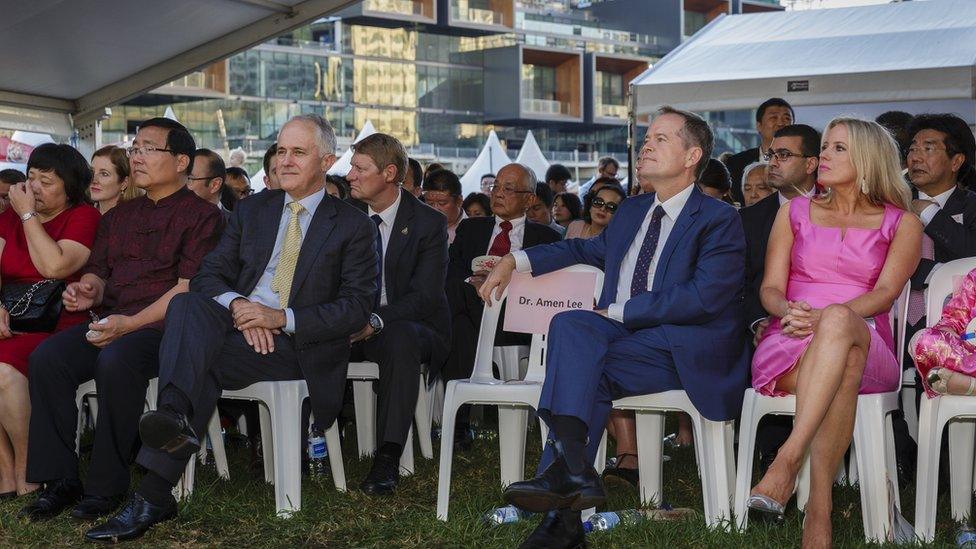
- Published19 November 2014
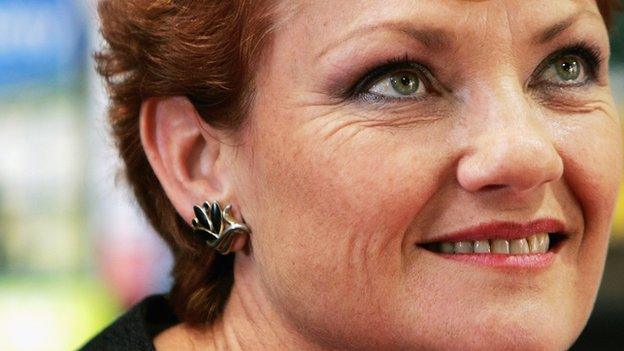
- Published17 May 2016
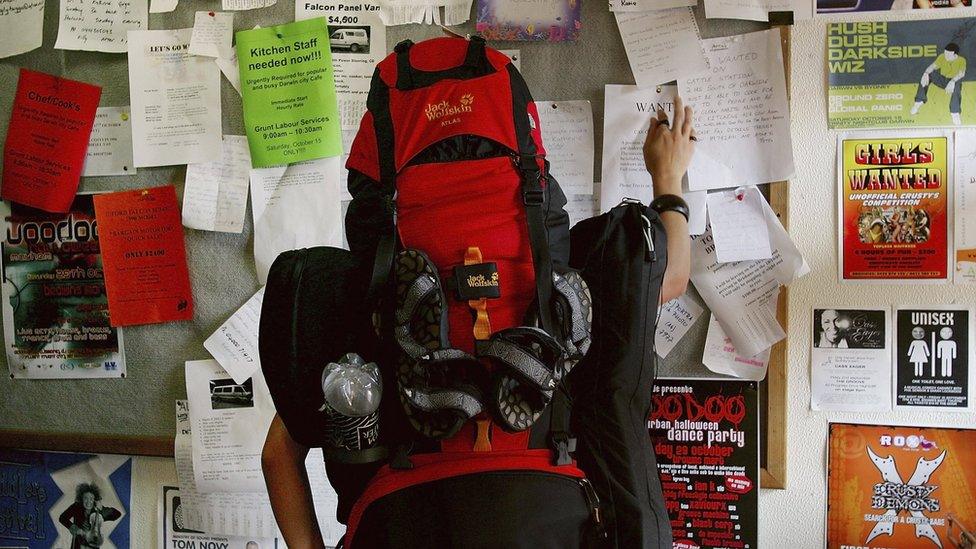
- Published13 May 2016
